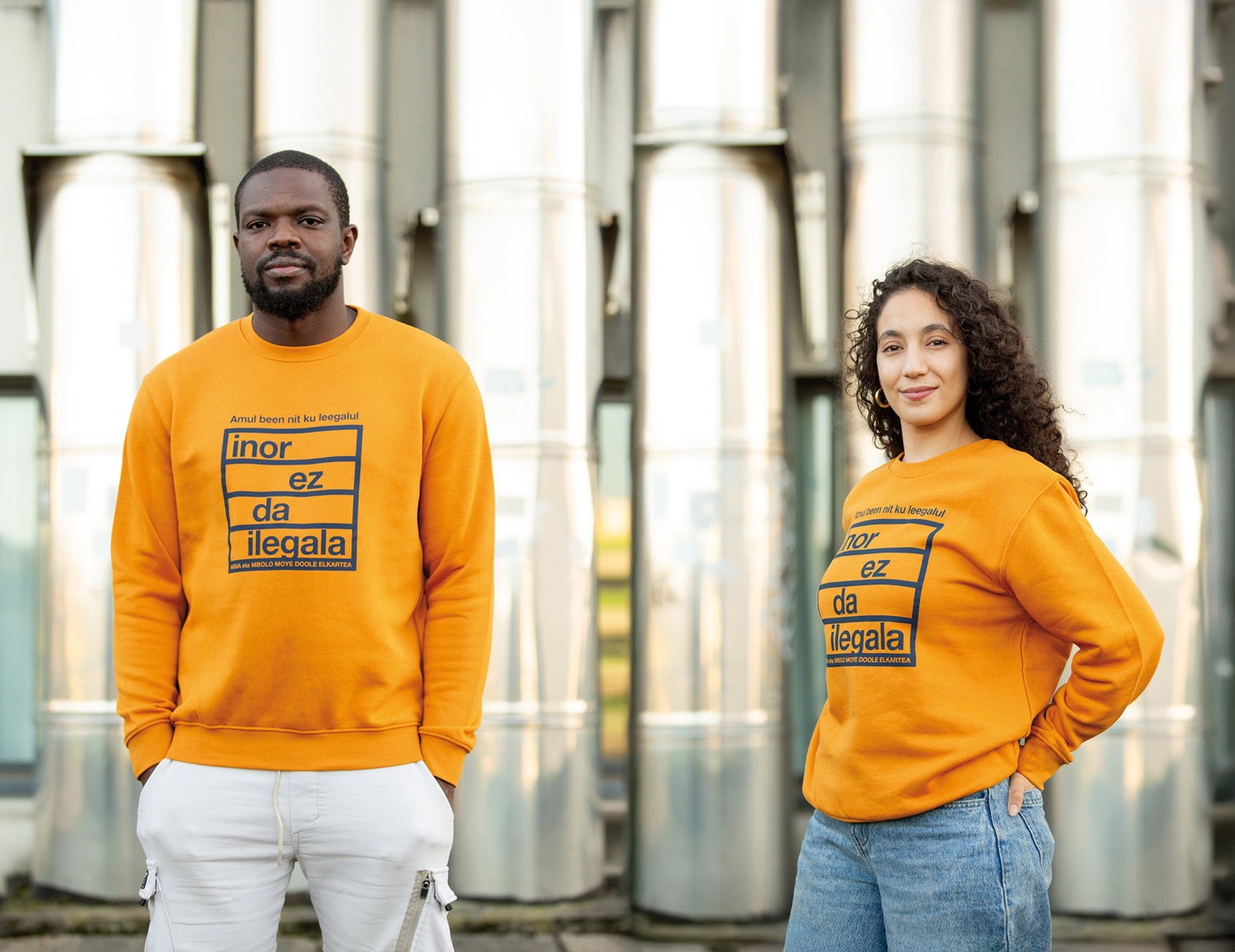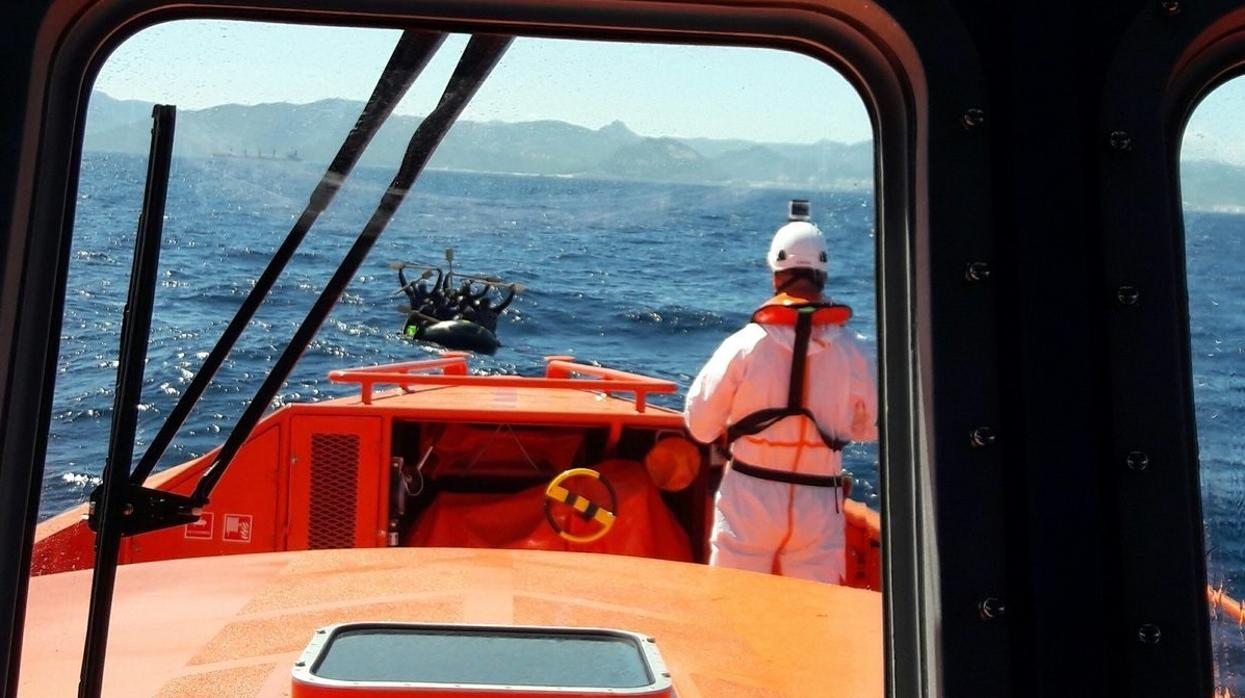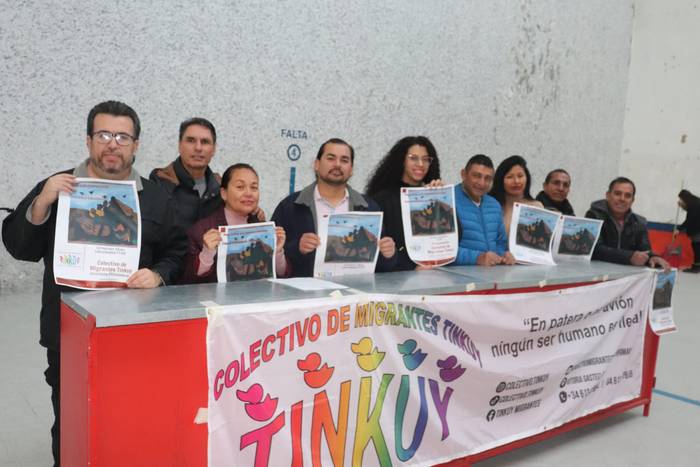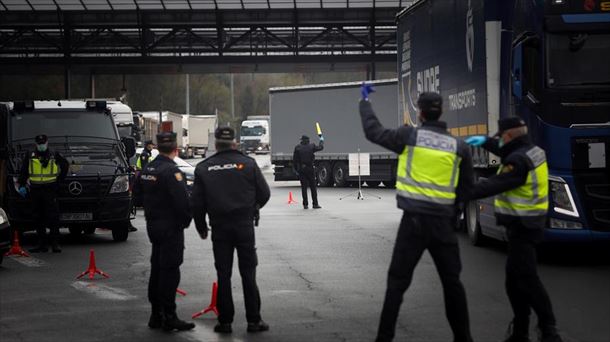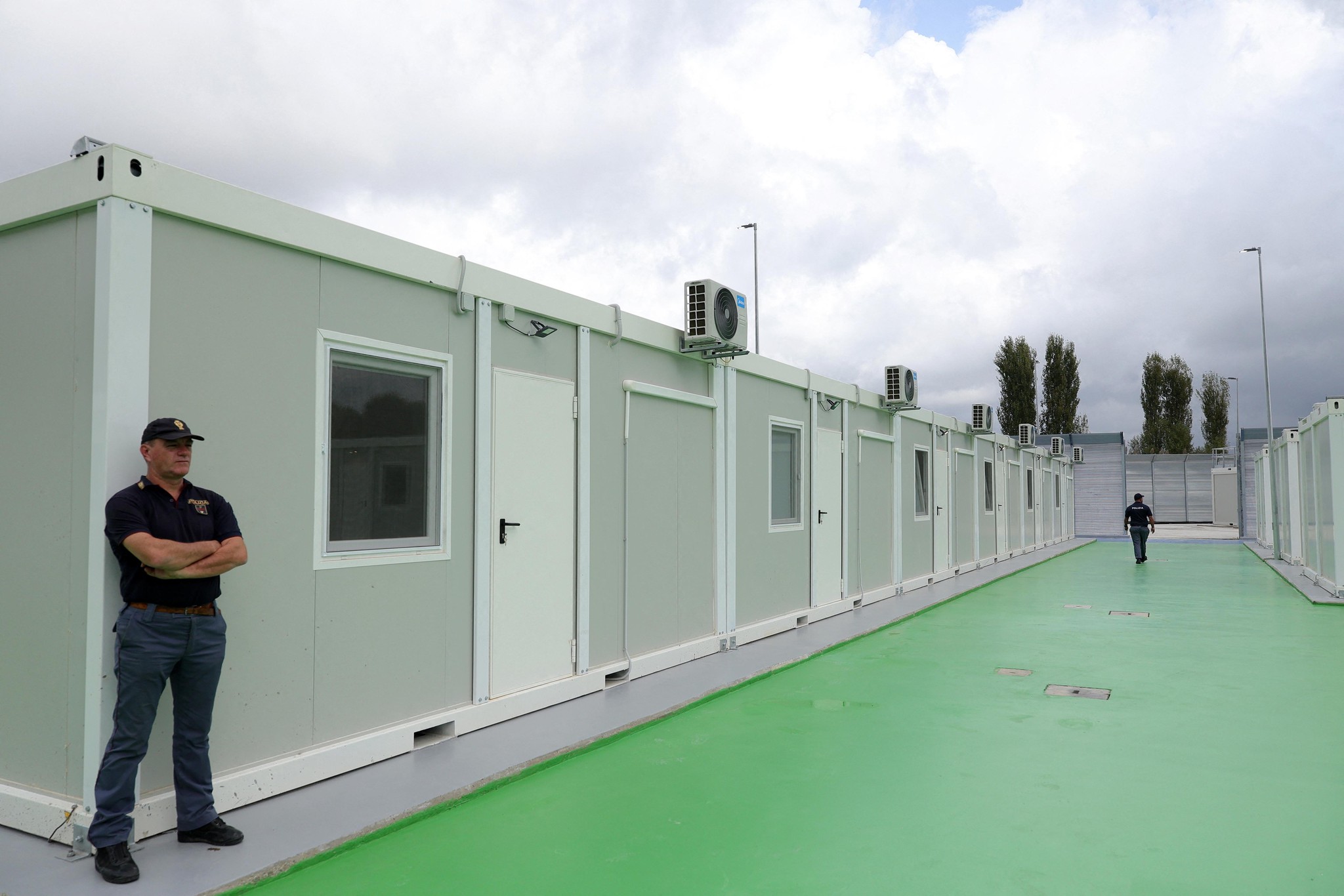“Modern” camps open Europe for immigrants as the kingdom of leading technologies
- On the Greek island of Samos, the new immigrant camp has been opened between applause and praise from representatives of the European Union and the Greek Government. Athens has four other features, thanks to the EUR 276 million collected from the European Union. Agents who are committed to the rights of immigrants believe that these new camps are genuine “prisoners”: a continuous control of displacement, driven by police, security agents, as well as by the new cutting-edge technologies, minimizing links with the outside world.

Isolated from everything, invisible, accumulated in a corner of the island, with the city closest to eight kilometers and surrounded by a barrier double wire of three meters. A new built space of 150,000 square meters in which 240 containers have been converted into lodgings for a total of 3,000 unpapers. Among immigrants, 150 policemen and 60 security agents, including cameras and drones, are continuously exercising control. The Greek authorities warn that they will paint the containers in green to confuse them with the environment of the area and attack as much as possible the day to day of the Greeks and tourists. The environment of the inmates, however, is gray, with the dominant stem and ungreen.
This is the “disappointed camp” of the island of Samos, called Zervou, built for immigrants. They opened their doors on 20 September and have four others of this kind, all in Greece: Kos Islands, Leros, Lesbos and Chios. Passing through Turkey, Greek immigrants have access to Europe. But the way will be cut and asylum seekers, as well as those who will be expelled from Greece rejecting asylum, will be kept in these camps.
Thanks to the use of cutting-edge technology, Zervou rima with extreme control. “The new generation of camps”, seen from the eyes of the European and Greek authorities. “A real people for asylum seekers offering all services,” said Filio Kyprizoglou, director of the centre.
These are new buildings, white, modern, built thanks to Europe’s public money – the EU has earmarked EUR 276 million for Greece, fully taking over the construction of the five camps. If the camps with wooden and fabric chabolas such as Vathy or Moria exposed the cruelty of European immigration policy, does Zervou not appear at first glance? Maybe, but unlike Vathy or Morian, Verzou is making extreme use of new technologies, and this is the new face of this cruelty. “This camp is better than Vathy fabrics, if it’s air conditioning, wifi, kitchens, water… But how long will they call me “refugees”? I am stressed with being always controlled and verified, I am stressed to be a prisoner”, you can read the testimony of an Iraqi refugee in the Mediapartat media, blocked on the island of Samos in the last three years.
The NGO Doctors Without Borders is clear: “We are in front of a prison.” Everything is designed so that immigrants cannot go abroad, that is, to the general public: laundries, internet sites, supermarkets, schools, playgrounds... they have at their disposal the main essential services within the wire fences.
Cecilia Sanfelici of the Europe Must Act structure, committed to a migration policy based on human rights and solidarity, sees a curve in the Zervou camp: “Of course, there are already desperate and controlled camps, we already have the camps surrounded by concrete walls, but the opening of this Samos camp symbolizes a new phase, it is a new step to hinder the integration of refugees.” Thus, this extreme isolation has led them to drastically reduce the chances of learning Greek, of receiving aid from associations and of gaining employment.
extreme control,
Above human rights
In addition to immigrants and non-governmental organisations, the attention is also from Europe: “Long-term deprivation of liberty and to a large extent has very serious consequences for mental health, especially for children.” These are the words of Dunja Mijatovic, Commissioner for Human Rights in the Council of Europe. Movements are fully controlled by police, cameras, fences, electronic portals and forced return orders at 20:00 hours, without the asylumseekers being able to leave the camp until it is expelled from Greece. One of the characteristics of this space is its investment in extreme technology and artificial intelligence. When entering, to open the door, immigrants have to show the fingerprint. They are grouped according to the situation of each (typical ages, families, people with asylum rejected,...) and must show a “magnetic document” in order to be able to move from one site to another.
Drones and cameras are also recording everything, 24 hours over 24 hours, and from a control point located in Athens the whole interior is meticulously observed. “Thanks to artificial intelligence, we will be able to detect strong concentrations and clashes,” said Greek Minister of Immigration, Notis Mitarachi. Greece invests in new control technologies, with a budget of EUR 36 million, and the European Union is once again the main source of revenue. Surprising and disappointing, it has received money from the European Union’s Next Generation EU plan. In the context of COVID-19, and until 2026, the European Union will officially spend EUR 800,000 million to boost the economy and respond to the challenges of digitisation and energy transition. This money will therefore also be used for the release of immigrants.
An interesting element in the interview carried out by jurist Petra Molnar in the Polish medium Gazeta Wyborcza: “It is clear that we must not forget the demand for the protection of private life, but we need a broader vision, that is, the influence of technologies of dehumanization and the impairment of dignity. We must also take into account the complexity of the human experience, taking into account multiple reasons for exile or seeking asylum.” Essential. However, artificial intelligence and new technologies are not able to do so. Frontex considers the structure responsible for the control and management of European borders to be an important tool. The European Union is also on the same path. While visiting the Zervou area, the French Interior Minister recommended the construction of such camps in Spain and Italy.
The poor management of the Valencian cold drop has led to a change in adverse meteorological alerts, as shown in the first season of "winter". Faced with the threat of rivers overflowing in Hego Euskal Herria, the indications for protection came along several paths, since no... [+]
Gasteizko Errotako (Koroatze) auzoan izan diren manifestazio "anonimoek" kolokan jarri dute auzokoen arteko elkarbizitza. Azalera atera dituzte ere hauetan parte hartu duten partidu politiko batzuen eta beste kide batzuen izaera faxista eta arrazista.
I started to mentally write my article while I was in the car. I usually have the best ideas in the car while driving alone. I'm going to Bilbao, to the Arriaga theater. The Artedrama company is today staging the Miñan play. It's Friday, October 25.
Approaching the atrium of the... [+]
Unfortunately, we are well separated from travelling and migrating. In the case of migrations, the process does not end either when reaching the intended locality, or when obtaining permission to reside in another town, it can take many years of their lives, decades, until they... [+]







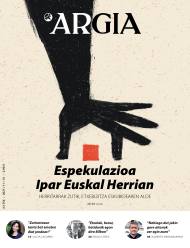



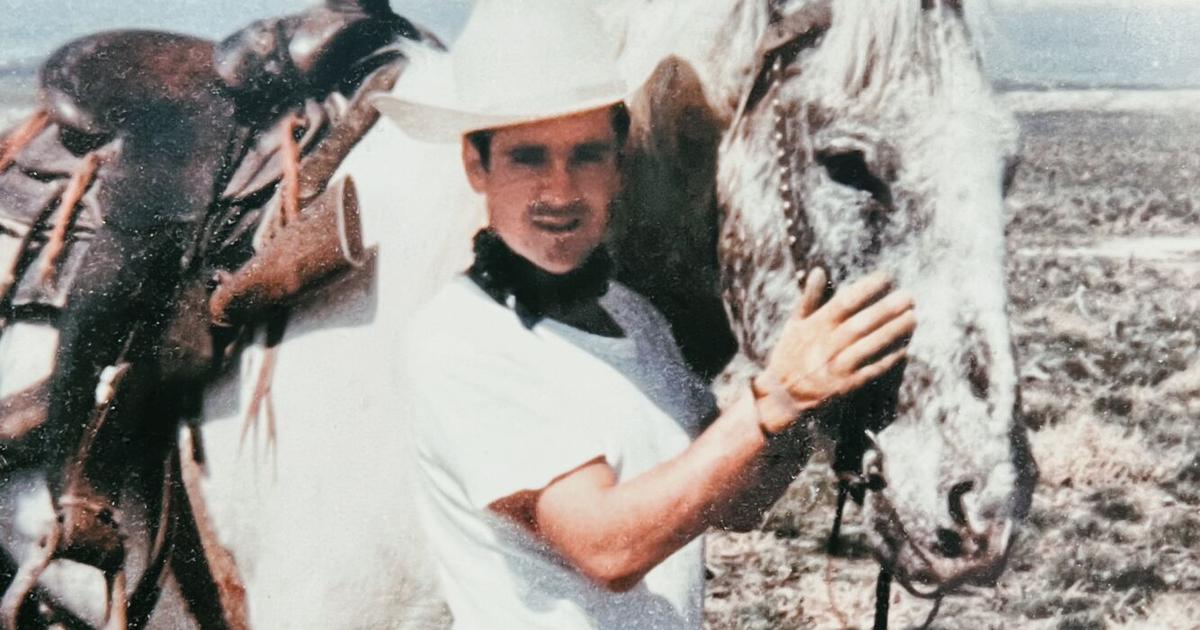
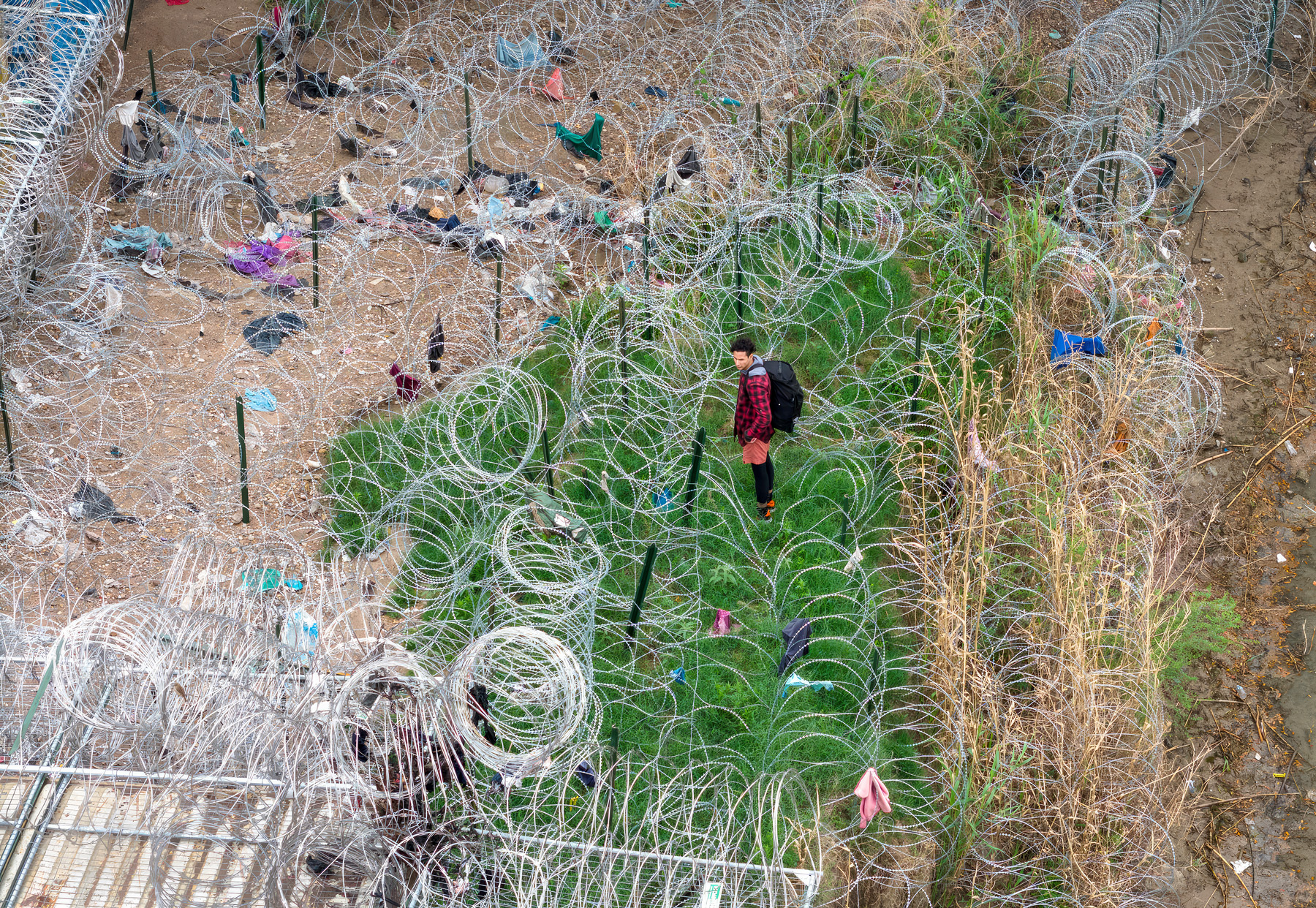

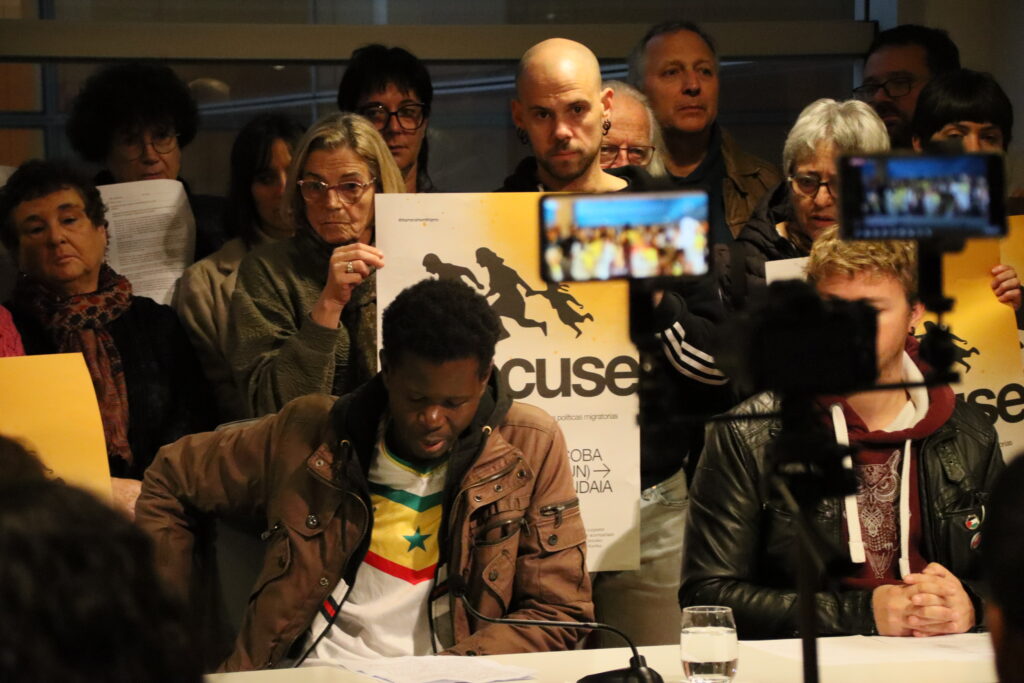
.jpg)

